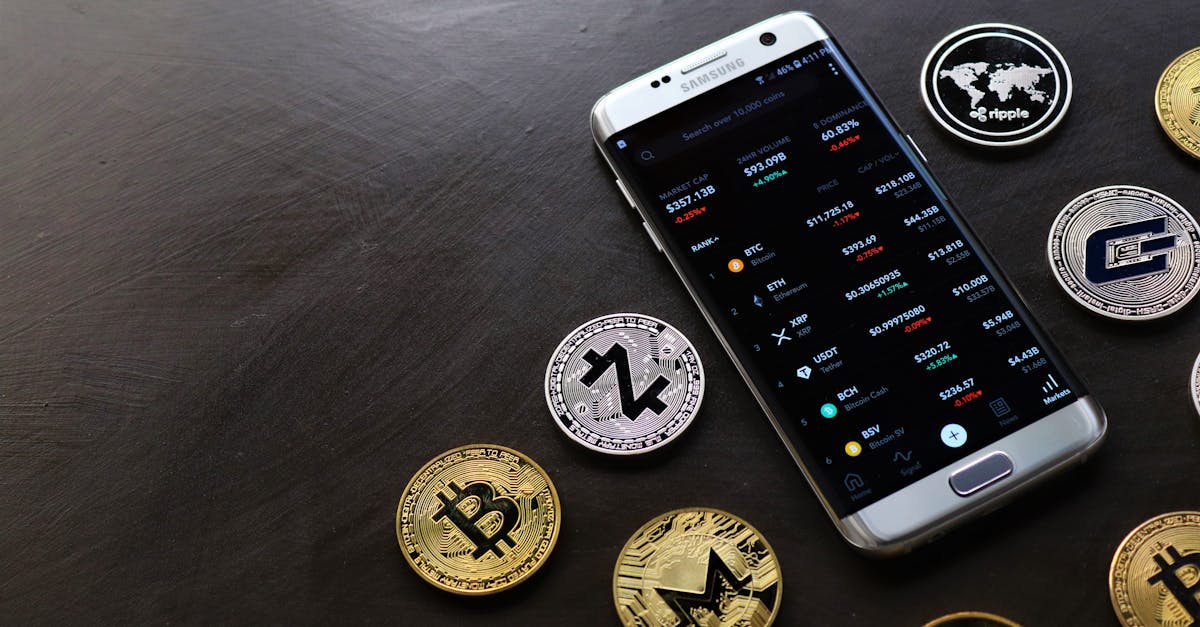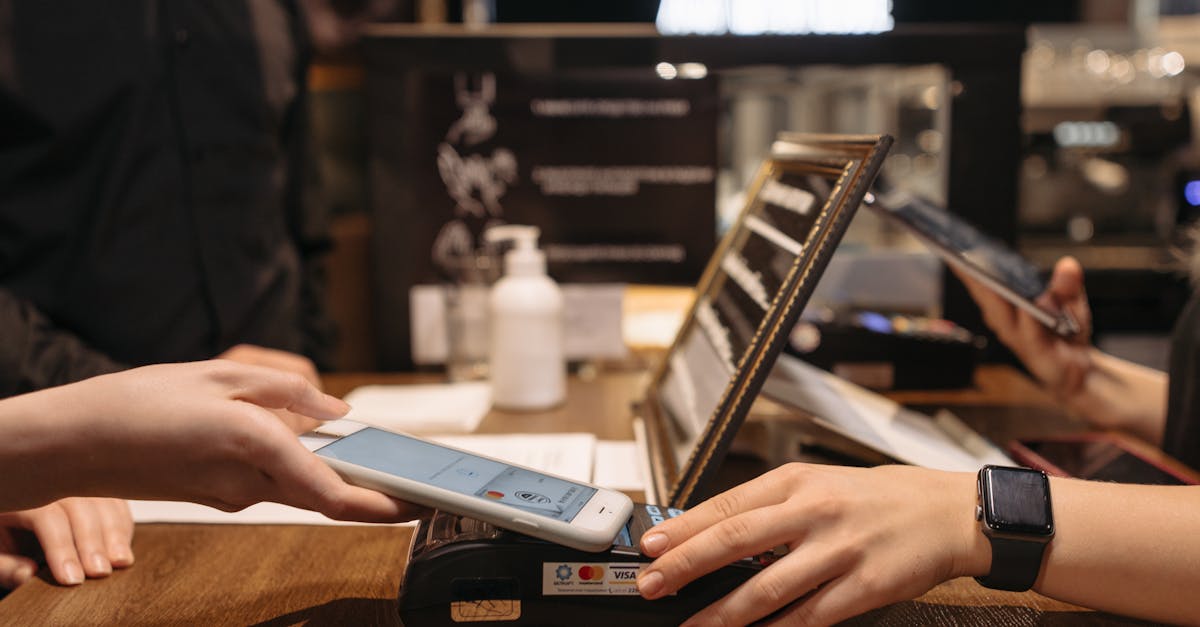Revolutionizing Digital Wallet Frontiers
Introduction
In today's rapidly evolving financial landscape, digital wallets are at the forefront of innovation, transforming the way we interact with money. These modern marvels enable users to store, transfer, and manage currencies entirely through their smartphones or computers. With the continued rise of e-commerce and contactless payments, digital wallets have become indispensable for many consumers. What drives this swift digital shift, and how are wallets redefining our financial systems? From Bitcoin to Apple Pay, the digital revolution in finance is scaling new heights, offering unparalleled convenience, security, and efficiency. This article delves into the fascinating world of digital wallets and explores the implications of their influence on our daily lives.
Advertisement
The Evolution of Digital Transactions
Digital wallets have their roots in the early days of online transactions, which paved the way for a world without cash dependency. In the 1990s, e-commerce platforms began experimenting with secure payment methods, setting the stage for today’s advanced digital wallets. Fast forward three decades, and digital wallets have transcended transactions, providing features like bill payments, ticket purchases, and peer-to-peer transfers. The advent of near-field communication (NFC) technology further revolutionized their utility, allowing instantaneous transfers with a simple tap. The transition from tangible cards to digital platforms marks a significant milestone in financial technology evolution—a change that mirrors society's growing demand for speed and security in finance.
Advertisement
Ease and Convenience for Consumers
At the heart of digital wallets is the promise of unparalleled convenience, fundamentally changing consumer behavior. Say goodbye to bulky wallets; with just a smartphone, users can access hundreds of transactions with a few taps. This shift is especially evident during the COVID-19 pandemic, which accelerated the demand for touch-free and online transactions. With digital wallets, users can effortlessly track spending habits, set spending limits, and receive personalized financial insights. This technological leap hasn’t only simplified purchases—it empowers consumers with control and transparency over their financial decisions, creating better money management habits.
Advertisement
Security Features and Challenges
As digital transactions become ubiquitous, security remains a top priority for consumers and providers donning digital wallets. These wallets harness encryption technologies, biometric authentication, and tokenization to shield user information from potential threats. Security protocols evolve continuously, aiming to outpace cybercriminals and phishing attacks. Despite these advancements, skepticism exists among users who fear breeches or identity theft. Hence, ensuring public trust is paramount, demanding ongoing vigilance in security practices and continual consumer education. Building confidence in digital transactions is not solely the purview of tech firms; governments and organizations play a pivotal role in reinforcing robust security frameworks.
Advertisement
Global Reach and Inclusion
Digital wallets open doors to financial inclusion across diverse demographics, bridging gaps for the unbanked or underbanked communities. In regions with limited access to traditional banking, digital wallets provide a gateway to financial services. Mobile money solutions enable users in developing countries to save, borrow, and transact without literate financial literacy. Africa and Asia, in particular, have witnessed tremendous growth in mobile money adoption, driving local economies and connecting communities to the global market. This digital transformation underscores the potential for digital wallets to drive socioeconomic progress and uplift populations with newfound financial independence.
Advertisement
Cryptocurrencies and Digital Wallets
Amid the rise of cryptocurrencies like Bitcoin and Ethereum, digital wallets have unlocked new opportunities for decentralized finance. Crypto wallets allow users to store, trade, and interact with a myriad of digital assets, playing a crucial role in the cryptosphere's proliferation. These wallets support blockchain networks, enabling transparent, decentralized, and cross-border transactions. While traditional digital wallets cater to fiat currencies, crypto wallets fully embrace decentralized finance's ethos, offering users an alternative to government-backed financial ecosystems. The intersection of digital wallets and cryptocurrencies paints a vibrant picture of digitaleconomy's future, inspiring innovation and reshaping how we perceive value.
Advertisement
Digital Wallets in Business
Beyond individual consumers, digital wallets are redefining business operations and transactions. Companies, from small businesses to global conglomerates, adopt digital solutions for seamless procurement, payroll, and customer engagement. Digital wallets facilitate faster payment processing, minimizing operational delays and reducing reliance on cash. They also offer merchants invaluable data on consumer patterns, enabling hyper-personalized marketing strategies and improved customer loyalty programs. In an era where customer experiences reign supreme, digital wallets provide a competitive edge by unlocking efficiencies across business ecosystems.
Advertisement
The Future: Beyond Payments
While digital wallets primarily focus on payments today, their potential stretches beyond financial transactions. Innovations in digital identity verification, blockchain integration, and smart contracts hint at a new era of digital wallets as comprehensive financial tools. Future iterations may automate legal agreements or manage digital identities, fundamentally reshaping digital profiles' management. Continuous advancements in artificial intelligence and machine learning could spawn digital wallets that intuitively adapt to users' needs, learning spending habits and predicting financial destinations. As these innovations take shape, digital wallets will likely play a central role in our interconnected digital lives.
Advertisement
Challenges and Considerations
Despite their promise, the road to universal digital wallet adoption features obstacles that stakeholders must address. Various models exist, each offering distinct pros and cons, leading to fragmentation and consumer confusion about the optimal choice. Moreover, regulatory hurdles pose substantial challenges, with compliance differing across jurisdictions and markets. Ensuring that digital wallets serve the broadest spectrum of consumers requires collaboration among industry leaders, regulators, and policymakers. Navigating these complexities effectively can lay a solid foundation for a secure, accessible, and adaptable digital wallet future.
Advertisement
Conclusion
Digital wallets find themselves at the epicenter of consumer finance, offering unprecedented speed, security, and adaptability. With the ability to streamline consumer and business transactions, they continue transforming the financial landscape. Through collaboration, innovation, and security vigilance, digital wallets have the potential to redefine financial inclusion worldwide. Their democratizing power illustrates technology's promise to enhance accessibility and economic empowerment. As we journey deeper into a cashless society, digital wallets illuminate pathways to a more inclusive, digital-first financial future.
Advertisement








